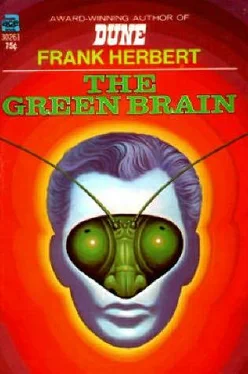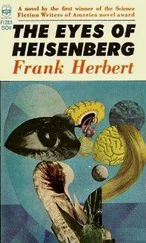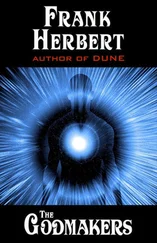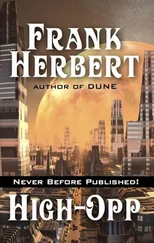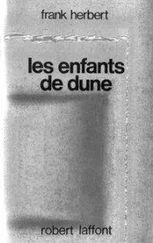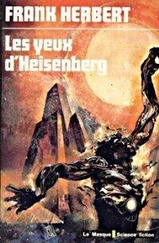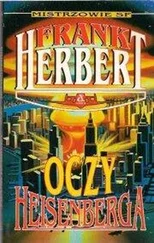Dawn came, revealing the plateau of the Mato Grosso: a caldron of liquid green boiling over the edge of the world. Joao looked out his side windows in time to see the truck’s long shadow bounce across a clearing: stark galvanized metal roofs against the green—a sitiante abandoned in the Resettlement, or perhaps the barracao of a fazenda on the coffee frontier. It had been a likely place for a warehouse, standing as it had beside a small stream with the land around it bearing signs of riverbank agriculture.
Joao knew this region; he could put the bandeirante grid map over it in his imagination—five degrees of latitude and six degrees of longitude it covered. Once it had been a place of isolated fazendas farmed by independent browns and blacks and branco sertanistos chained to the encomendero plantation system. The parents of Benito Alvarez had come from here. It was hardwood jungles, narrow rivers with banks overgrown by lush trees and ferns, savannahs and tangled life.
Here and there along the higher reaches of the rivers lay the remains of hydroelectric plants long since abandoned, like the one at Paulo Afonso Falls—all replaced by sun power and atomics.
This was it: the sertao of the Goyaz. Even in this age it remained primitive, a fact blamed on the insects and disease. It lay there, the last stronghold of teeming insect life in the Western Hemisphere, waiting for a modern tropical technology to lift it into the Twenty-first Century.
Supplies for the bandeirante assault would come by way of Sao Paulo, by air and by transport on the multi-decked highways, then on antique diesel trains to Itapira, by aviadores river runners to Bahus and by airtruck to Registo and Leopoldina on the Araguaya.
And when it was done—the people would return, coming back from the Resettlement Plan areas and the metropolitan shantytowns.
A passage of turbulent air shook the truck, breaking Joao from his reverie, forcing him into an acute consciousness of his situation.
A glance at his guard showed the creature still crouched there, watchful… as patient as the Indio it mimicked. The presence of the thing behind him had become cumulative, and Joao found himself required to combat a growing sense of revulsion.
The gleaming mechanical pragmatism of the truck pod around him felt as though it were at war with the insect creature. It had no business here in this cabin flying smoothly above the area where its kind ruled supreme.
Joao looked out and down at the green flow of forest, the zona da mata . He knew the area beneath him crawled with insects: wire worms in the roots of savannahs, grubs digging in the moist black earth, hopping beetles, dart-like angita wasps, chalcis flies sacred to the still thriving backwoods Xango cult, chiggers, sphecidae, braconidae, fierce hornets, white termites, hemipteric crawlers, blood roaches, thrips, ants, lice, mosquitoes, mites, moths, exotic butterflies, mantidae—and countless unnatural mutations of them all.
That, for sure.
This would be an expensive flight—unless it had already been lost.
I mustn’t think that way , Joao told himself. Out of respect for my father, I mustn’t think that way… not yet .
IEO maps showed this region in varied intensities of red. Around the red ran a ring of gray with pink shading where one or two persistent forms of insect life resisted man’s poisons, jelly flames, astringents, sonitoxics—the combination of flamant couroq and supersonics that drove insects from their hiding places into waiting death—and all the mechanical traps and luring baits in the bandeirante arsenal.
A grid map would be placed over this area and each thousand-hectare square offered for bid to the independent bands to deinfest.
We bandeirantes are a kind of ultimate predator , Joao thought. It’s no wonder these creatures mimic us .
But how good, really, was this mimicry he asked himself. And how deadly to the predators? How far had this gone?
“There,” said the creature behind him. The multi-part hand came forward to point toward a black scarp visible ahead of them in the gray light of morning. Heavy mist against the scarp told of a river nearby hidden by the jungle.
This is all I need , Joao thought. I can find this place again easily .
His foot kicked the trigger on the floor, releasing a great cloud of orange dye-fog beneath the truck to mark the ground and forest for more than a kilometer around. As he kicked the trigger, Joao began counting down silently the five-second delay to the automatic firing of the separation charge.
It came in a roaring blast that Joao knew would smear the creature behind against the rear bulkhead. He sent the stub wings out, fed power to the rocket motors and banked hard left. Now he could see the detached rear compartment settling slowly earthward above the dye cloud, its fall cushioned as the pumps of the hydrostatic drive automatically compensated.
I will come back, Father , Joao thought. You will be buried among family and friends .
He locked his pod controls, turned to deal with his guard.
A gasp escaped Joao’s lips.
The rear bulkhead crawled with insects clustered around something yellow-white and pulsing. The mud-gray shirt and trousers were torn, but insects already were repairing it, spinning out fibers that meshed and sealed on contact. There was a dark yellow sac-like object extruding near the pulsing surface and glimpses through the insects of a brown skeleton with familiar articulation.
It looked like a human skeleton—but dark and chitinous.
Before his eyes, the thing was reassembling itself—long furry antennae burrowing inward and interlocking, one insect to another, claw fringes weaving together.
The flute weapon wasn’t visible, and the thing’s leather pouch had been hurled into a rear corner by the blast, but its eyes were in place in their brown sockets, staring at him. The mouth was reforming.
The dark yellow sac contracted, and a voice issued from the half-formed mouth.
“You must listen,” it rasped.
Joao gulped, whirled back to the controls, unlocked them and sent the pod into a wild, spinning turn.
A high-pitched rattling buzz sounded behind him. The noise seemed to pick up every bone in his body and shake it. Something crawled on his neck. He slapped it, felt it squash.
All Joao could think of then was escape. He stared out frantically at the earth beneath, glimpsing a blotch of white in a savannah off to his right and in the same instant recognizing another airtruck banking beside him, the insignia of his own Irmandades bright on its side.
The white blotch in the savannah resolved itself into a cluster of tents with an IEO orange and green banner flying beside them. Beyond the flat grass could be seen the curve of a river.
Joao dove for the tents.
Something stung his cheek. Crawling things were in his hair—biting, stinging. He kicked on the braking rockets, aimed for open ground beside the tents. Insects were all over the inside of the pod’s glass now, blocking his vision. Joao said a silent prayer, hauled back on the control arm, felt the pod mush out, touch ground, skidding and slewing. He kicked the canopy release before the motion stopped, broke the seal on his safety harness and launched himself up and out to land sprawling on hard ground.
He rolled over and over, eyes tightly closed, feeling the insect bites like fire needles over every exposed part of his body. Hands grabbed him and he felt a jelly hood splash across his face to protect it. Hard spray slammed against him from all sides.
Somewhere in a hood-blurred distance he heard a voice that sounded like Vierho’s shout, “Run! This way—run!”
Читать дальше
